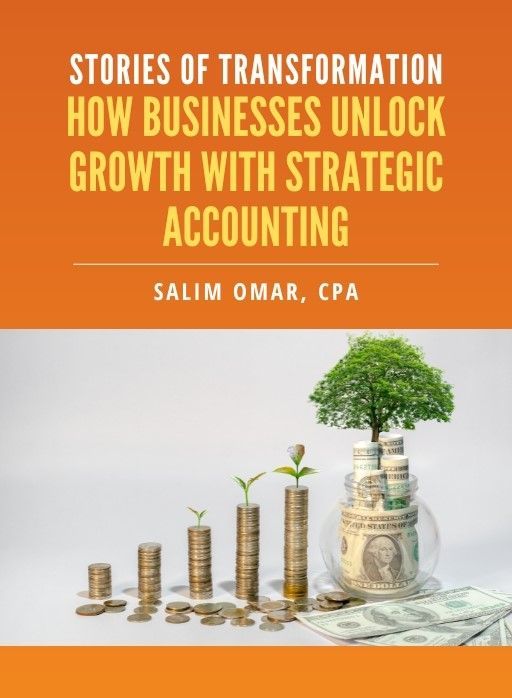Tax Extensions Explained: When They Make Sense for Your Business
The Truth About Filing Late — Without Paying the Price
“Extension” sounds like a delay — but in the business world, it’s often a strategy.
Many business owners panic at tax time, thinking an extension is a red flag. In reality, it can be a smart move — a way to buy time without inviting penalties or triggering scrutiny.
At Straight Talk CPAs, we tell clients this upfront: a tax extension isn’t about procrastination. It’s about precision. When used correctly, it protects your compliance, your cash flow, and your peace of mind.
Let’s clear the confusion and get tactical about when — and why — an extension works in your favor.
1. The Extension Doesn’t Delay Payment — Just the Paperwork
First, the big myth: filing an extension doesn’t postpone your tax payment, only your filing deadline.
You still need to estimate and pay your taxes by the original due date to avoid interest or penalties. What the extension buys you is breathing room to finalize your books, confirm deductions, and file accurately.
Think of it as a grace period for quality control.
If your business had a complex year — acquisitions, new revenue streams, or expanded operations — filing too quickly can lead to costly oversights.
Sometimes, slowing down is the smarter move.
2. When an Extension Actually Makes Sense
Extensions aren’t for everyone — but they’re invaluable when:
- Your financials aren’t final: You’re waiting on K-1s, 1099s, or late reconciliations.
- You experienced a major business shift: New partners, mergers, or entity changes.
- You’re still clarifying deductions or credits: Especially with complex R&D, depreciation, or multi-state filings.
- Your CPA workload is stacked: Quality over speed. A rushed return can result in more costly amendments later.
In short, when accuracy matters more than speed, an extension is not a delay. It’s
damage control by design.
3. The Strategic Edge of an Extension
For high-income business owners, extensions can be a tactical advantage, not a fallback.
Here’s why:
- Improved documentation: More time to compile receipts, valuations, or charitable contributions.
- Better cash flow visibility: Waiting a few months allows more precise planning around tax liabilities.
- Strategic coordination: Aligns your tax planning with Q2 financial forecasts and business investments.
Sometimes the smartest tax move isn’t rushing — it’s recalibrating.
4. What It Doesn’t Mean
Let’s be clear: an extension is not a get-out-of-jail card.
- You
must pay what you owe on time, even if you extend.
- It’s
not a signal of financial trouble — the IRS grants millions of extensions each year.
- It won’t trigger audits if your records are clean and payments are made.
The IRS would rather see a complete, correct return in October than a sloppy one in March.
Pro tip: File electronically, pay, and document everything. The system rewards compliance and clarity — not speed for its own sake.
5. How to Use the Extra Time Wisely
If you file an extension, make those extra months count:
- Review depreciation schedules and fixed asset lists.
- Recheck charitable and retirement contributions.
- Reconcile vendor payments, payroll records, and expense categories.
- Meet your CPA mid-year — not at the deadline — to adjust projections and prepare for next season.
Smart businesses use the extension window to
level up their record-keeping and
tax readiness.
6. When an Extension Is a Red Flag
There are times when filing late can hurt:
- If your tax liability is unpredictable and you can’t estimate it accurately.
- If your cash reserves are tight and you can’t pay on time.
- If you routinely rely on extensions as a habit, not a strategy.
Used occasionally, an extension is smart planning. Used constantly, it signals disorganization — something both your
CPA and the IRS notice.
Bottom Line: It’s Not Procrastination — It’s Protection
A tax extension isn’t about avoiding deadlines; it’s about earning accuracy.
When life or business throws complexity your way, extending your filing date can save you from rushed errors, unnecessary amendments, and missed deductions.
The smartest business owners don’t fear extensions — they use them as part of their strategy.
At Straight Talk CPAs, we help clients make that call with clarity — deciding when an extension strengthens their position and when it’s time to file confidently on schedule.
Because in business, filing late isn’t the risk — filing wrong is.
Free eBook:
Stories of Transformation


Salim is a straight-talking CPA with 30+ years of entrepreneurial and accounting experience. His professional background includes experience as a former Chief Financial Officer and, for the last twenty-five years, as a serial 7-Figure entrepreneur.





